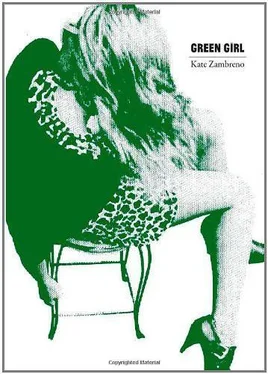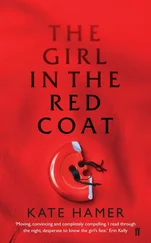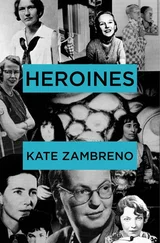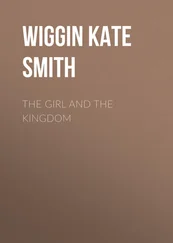Kate Zambreno - Green Girl
Здесь есть возможность читать онлайн «Kate Zambreno - Green Girl» весь текст электронной книги совершенно бесплатно (целиком полную версию без сокращений). В некоторых случаях можно слушать аудио, скачать через торрент в формате fb2 и присутствует краткое содержание. Год выпуска: 2011, Издательство: Emergency Press, Жанр: Современная проза, на английском языке. Описание произведения, (предисловие) а так же отзывы посетителей доступны на портале библиотеки ЛибКат.
- Название:Green Girl
- Автор:
- Издательство:Emergency Press
- Жанр:
- Год:2011
- ISBN:нет данных
- Рейтинг книги:5 / 5. Голосов: 1
-
Избранное:Добавить в избранное
- Отзывы:
-
Ваша оценка:
- 100
- 1
- 2
- 3
- 4
- 5
Green Girl: краткое содержание, описание и аннотация
Предлагаем к чтению аннотацию, описание, краткое содержание или предисловие (зависит от того, что написал сам автор книги «Green Girl»). Если вы не нашли необходимую информацию о книге — напишите в комментариях, мы постараемся отыскать её.
The Bell Jar
Green Girl
Green Girl — читать онлайн бесплатно полную книгу (весь текст) целиком
Ниже представлен текст книги, разбитый по страницам. Система сохранения места последней прочитанной страницы, позволяет с удобством читать онлайн бесплатно книгу «Green Girl», без необходимости каждый раз заново искать на чём Вы остановились. Поставьте закладку, и сможете в любой момент перейти на страницу, на которой закончили чтение.
Интервал:
Закладка:
Ruth started using the public toilet on the second floor to avoid the terrible girls. It smells of fart and an older woman’s perfume. Escada, Ruth guesses.
Two women hold court in front of the mirrors, addressing themselves through their reflections. They do not turn to the real versions. Girls from an early age learn an uncanny ability to address their mirror image as their identical twin.
How do you like my hair like this?
The brown?
Mmmhmm. It’s really an auburn.
It’s darker.
Yes.
I think it’s quite flattering.
Do you? The woman angles her sagging chin from side to side. She is still dissatisfied.
It matches your skin colour, really nicely.
Ruth locks herself inside a stall. She dries off drops of urine from the bowl, curly swivels of hair, her hair almost touching the pale splatters. She sits down, studies the sign on the door.
To Avoid Loss:
Deposit Handbags on the Shelf
Who does your hair now dear?
Oh I go to a salon in Marylebone.
Ruth repeats this phrase to herself, a salon in Marylebone. Mar-ley-bone. She hadn’t a clue where that was. It sounded expensive.
To Avoid Loss. The taste of words. An absurd phrase.
You make me and then you destroy me and you expect me to pick up the pieces again and live. Like I had never met you. It is so easy for you. You are already dead inside.
Nothing comes out. Not even a trickle. Maybe she didn’t have to go. Ruth wipes, nonetheless, from front to back, like a good girl.
Outside the two women are still camped out at the mirrors. Ruth washes her hands. She sees herself solemn in the mirror.
The women pause as the stranger approaches. Ruth watches them watching her in the row of mirrors. Her eyes meet the gaze of the woman whose hair is in question. It really was more of an auburn, with little flicks of fire masking wiry grays. Her face harsh in the light. Old lady hair. It ages you, Ruth wants to say, soothingly. She wonders if this is what the friend thinks and does not say.
The woman with the new hair pulls out a plastic hairbrush from her small handbag. She runs it through her severe bob in one neat, unconscious gesture, her face almost sad. In a quiet duet her friend unzips the pocket of her purse, pulling out a lipstick. She focuses closely on coating pinky-brown to her lips.
Ruth lowers her eyes and meditates under the hot rush of the hand dryer.
~ ~ ~
Ruth wants to escape. She wants to escape outside of herself. Everywhere she goes she wants to confide: Do you know what it’s like not to be able to shake your own quality? She doesn’t want to be. She doesn’t want to live. She wants to lose herself, lose herself in the crowd. She is somehow numbed to the horrors of everyday. Images, other images haunt her brain. The violence of life she observes, blankly. She watches it all unfold. She is not there. A series of shocks and sensations. All along she is trying to figure out life, life, a life which has lost all meaning. Yes, life. Ahh, life. And what about that? Is there nothing else? Life, death, nothing else?
Inside the tube station. The rush hour crush. Ruth is standing exhausted and limp in the queue. Her card won’t go through. She is embraced by the arms of the turnstile, like an angry robot mother. A groan behind her. I’m sorry. I’m sorry. She squeaks out. A shamed whisper, a reddening face to an audience of bemused and knowing eyes.
We live in such fear of puncturing the moment, of forgetting our lines.
The car stops in darkness. She is in the corner in the back, pressed against the glass door. The train thick with passengers. Rows and rows. Bodies, bodies, more bodies. Her face grows hot. People pushing her, pressing up against her. She feels herself swaying, swaying. I am going to be sick, she thinks. But she steels herself.
She closes her eyes and tries to die inside.
~ ~ ~
I am a camera with its shutter open, quite passive, recording, not thinking. Recording the man shaving at the window opposite and the woman in the kimono washing her hair. Some day, all of this will have to be developed, carefully printed, fixed.
— Christopher Isherwood, Goodbye to BerlinRuth loves the ritual of proper tea. The clink of the cup against the saucer. She feels very English drinking it. After work sometimes or on her days off she goes to her favorite French pastry shop on Greek Street. It has a proper tea service. Today she smiles tentatively at the elderly man with the gray ponytail who noddingly takes her drink order and points her to the table next to the cash register. Sit here, my dear. She is the only customer downstairs. It is the middle of the afternoon.
He recognizes her now and she smiles at him gratefully. Sometimes he makes conversation with her when it is slow. This slightest of recognitions inflames in her a joy that carries her through gray and wettened streets, through cloaks of invisibility.
She bought a blank notebook at a bookstore on Charing Cross Road. She opens it up in front of her on the table. It is her protective shield. She plans to fill it with all her innermost thoughts and reflections.
She takes pictures in her mind. She stores them away for someday, these images, these experiences, to later document, once she has figured out why she did them in the first place. She watches the world, yet cannot yet articulate her role in it. She cannot fathom the depths. For now she writes dear diary entries in her childish hand dotted by exclamation points. What is it with young women and exclamation points and smiley faces! So afraid of appearing somber, always wanting to appear light and happy and sparkling, even when they are dying inside. Not ever being able to escape the mask that smiles.
She wants to write, really write someday. But she is not fully formed. So she does not write. Not really. Unless attempting to live is a form of attempting to write.
The agony of becoming. This is what she experiences. The young girl. She would like to be someone, anyone else. She wants, vaguely, to be something more than she is. But she does not know what that is, or how one goes about doing such a thing.
A photo shoot is taking place. The old man and Ruth watch silently. A model with long straight brown hair stands outside of the pastry window, wearing an orange flamenco dress. It is freezing outside. The photographer shoots her from inside the café. She is slender and shivering. It seems cruel that a pane of glass separates her and those gorgeously glossy strawberry custard tarts. Ruth’s talent is empathy. Her stomach growls. She is hungry. She has only budgeted enough for a pot of tea.
No pastry today? her old man asks. He remembers her sweet tooth.
Not today, she smiles, too wide perhaps, too needy, too grateful.
Lovely, the photographer keeps saying. He is like David Hemmings in Blow-up . Lovely, lovely, lovely.
~ ~ ~
Delphine: Did he have a camera?
Solange: No.
Delphine: Then how did you know he was an American?
— Catherine Deneuve and Françoise Dorléac in Jacques Demy’s Les Demoiselles de RochefortDesire? Desire? Would you like to try?
Ever since the toilet incident Ruth tried to smile without showing teeth. She tried to mime Elspeth’s severity. Ever since that day she stopped having lunch with Natalie, who had moved on, swinging her large fake crocodile purse while keeping up with the tall new temp who worked in luggage, as they exited the revolving doors, Natalie bouncing and chattering all the while, like a dot that directs the words to sing, her companion bobbing his head up and down in gentle rhythm. From time to time Ruth caught the boy looking at her as he passed her outside the front entrance. He had red hair, an enflamed face.
Читать дальшеИнтервал:
Закладка:
Похожие книги на «Green Girl»
Представляем Вашему вниманию похожие книги на «Green Girl» списком для выбора. Мы отобрали схожую по названию и смыслу литературу в надежде предоставить читателям больше вариантов отыскать новые, интересные, ещё непрочитанные произведения.
Обсуждение, отзывы о книге «Green Girl» и просто собственные мнения читателей. Оставьте ваши комментарии, напишите, что Вы думаете о произведении, его смысле или главных героях. Укажите что конкретно понравилось, а что нет, и почему Вы так считаете.












